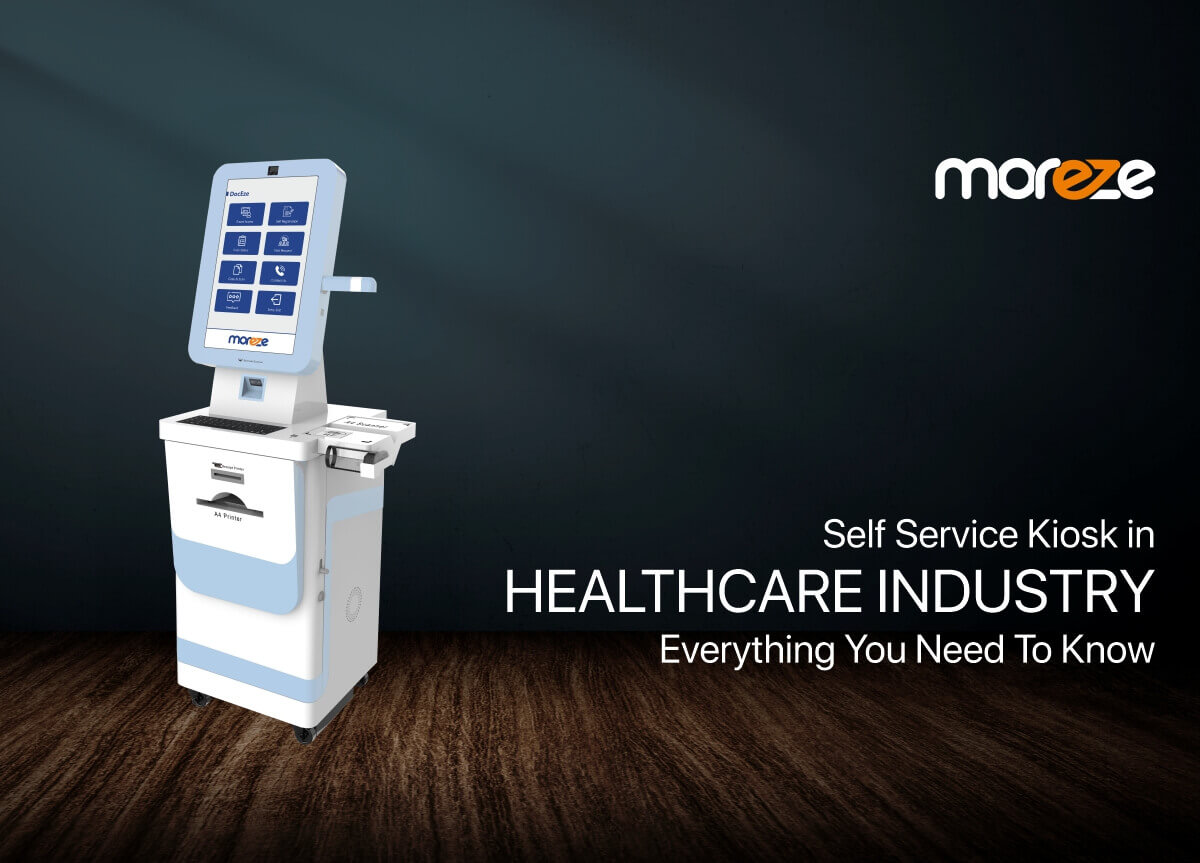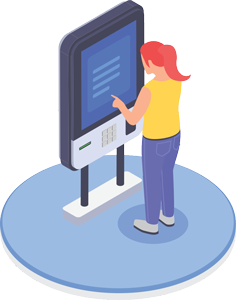Posted on 31 May 2022 by Vinod Rathore

The healthcare industry needs to keep up with technological advancements for better diagnosis and treatment of patients. From 3-D printing to robots, healthcare professionals are leveraging technology and innovation to provide quality treatment, and interactive kiosk is one of them. Self-service kiosks in healthcare are gaining momentum owing to the convenience and security they deliver.
Given the potential of interactive kiosksto perform well in high foot traffic areas, many hospitals are deploying them to provide better care and treatment to patients. Hospitals and patients benefit from healthcare kiosks in different ways, including digital patient registration & identification, fast check-ins, secure payment, and promotion of education and public awareness.
Why healthcare facilities should invest in the self-service kiosk?
Before jumping to the answer, let's first know what exactly an interactive kiosk is.
A self-service kiosk displays engaging content and allows visitors to interact with an organization while receiving information and services. There are numerous advantages to self-service kiosks, which revolutionize the global healthcare system. We have compiled a list of self-service kiosk advantages and use cases that elevate healthcare services to new heights.
Advantages of kiosk machines for healthcare
No long queuesHospitals experience high foot traffic, making it difficult for staff members to serve effectively to visitors. Interactive kiosks enable patients to perform various tasks quickly, reducing long wait times.
Avoid Confusion and ErrorTraditionally, hospital staff fills out forms and other information manually, prone to human error. However, with the introduction of healthcare kiosks, the chances of mistakes and errors are reduced because patients fill out their forms, which are more likely to be accurate.
Cost-EffectiveVarious operations, such as patient registration, necessitate the use of paper and human resources. Self-service kiosks eliminate the need for all these resources, lowering the cost of operations. It also allows employees to focus on more important tasks rather than getting busy with paperwork.
Reduces Pathogens TransmissionThe kiosks perform tasks without any human intervention making them suitable to use in the covid- 19 as it reduces the risks of corona transmission. When patients interact with the self-service kiosk, hospital staff no longer risks exposure to viruses or germs from sick individuals. It is also easy to disinfect kiosks compared to the reception or other entry points.
Use cases of Self-service kiosks in healthcare
Check-inPatient check-in is one of the most time-consuming tasks, resulting in treatment delays. The introduction of interactive kiosks in hospitals aids patients in feeding their information into the database quickly.
Easy PaymentPatients and their family members can also use self-service kiosks to settle their bills and payments. It also allows them to pay medical bills and make payments using a credit or debit card.
Scheduling an AppointmentTraditionally, a visitor approaches the receptionist or other staff members to schedule an appointment with a doctor, which is time-consuming. Self-service kiosks can help a patient schedule appointments with the desired doctor at their convenience.
WayfindingPatients frequently have difficulty locating the departments they wish to visit, resulting in increased wait times. A kiosk can perform the task of directing patients in the right direction. The digital map can be printed at the kiosk or sent to the patient's phone, making it easier to meet doctors on time.
Wrap UpSelf-service kiosks are emerging as a robust tool for hospitals in managing critical operations. Hospitals are deploying to relieve staff stress and provide better service to patients.
If you're looking to deploy self-service kiosks in your business, you can opt for Moreze's interactive kiosks that can be customized to meet your needs.
Moreze: A brand you can trust
Features of Moreze Kiosk:-
Patient Self-check-in
Robust access control to confidential Medical records
Wait-room status and Notification
Wayfinding and Building directory
ID verification and form submission
Video conferencing
Vendor screening
